- Home
- Brandon Sanderson
Calamity Page 12
Calamity Read online
Page 12
The nearly finished hideout was tall and thin, going up three narrow stories. In places, I could reach out and touch both walls at once. We’d made the outside of it look like lumps of rock to match the other growths like this in the city. All in all, we’d decided we preferred a place that was more secure, built ourselves, rather than moving into one of the houses out there.
I headed down the steep pink crystal steps to the next level, the kitchen—or at least where we’d set up a hot plate and water jug, along with a few small appliances powered by one of the jeeps’ power cells.
“Finally done unpacking?” Mizzy asked me, wandering by with the coffeepot.
I stopped on the bottom step. “Uh…” Actually, I hadn’t finished.
“Too busy smooching, eh?” Mizzy said. “You do realize that without doors, we can kinda hear everything.”
“Uh…”
“Yeaaaah. I wish there were a rule against team members making out and stuff, but Prof would never have done that, considering that him and Tia were a thang.”
“A thang?”
“It’s a word you probably shouldn’t ever say again,” she said, handing me a cup of coffee. “Abraham wanted to see you.”
I set the coffee aside and got a cup of water instead. I could never see why people drank that stuff. It tasted like soil boiled in mud, with a topping of dirt.
“You still have my old mobile?” I asked Mizzy as she climbed the steps. “The one Obliteration broke?”
“Yup, though it’s cracked pretty good. Saved it for parts.”
“Grab it for me, will you?”
She nodded. I climbed down to the ground floor, where we’d stashed most of our supplies. Abraham knelt in one of the two rooms here, lit only by the light of his mobile—the upper two floors had hidden skylights and windows, but not much filtered down this far. We’d built him a worktable here out of saltstone, and he was going over the teams’ weapons one at a time, cleaning and checking them.
Most of us were perfectly willing to do it on our own, but…well, there was something comforting about knowing that Abraham had approved your gun. Besides, my Gottschalk was no simple hunting rifle. With electron-compressed magazines, hyperadvanced scope, and electronics systems that hooked into my mobile, I would be able to do only the basics on my own. It was the difference between putting ketchup on your hot dog and decorating a cake. Best to let an expert take over.
Abraham nodded to me, then waved toward his pack nearby on the floor, which hadn’t been completely unloaded. “I brought something back for you during my trip out to the jeeps.”
Curious, I walked over and rummaged in the pack. I pulled out a skull.
Made entirely of steel, it reflected the mobile’s light with its eerie, smooth contours. The jaw was missing. That had been separated from it in the blast that had killed this man, the man who had named himself Steelheart.
I stared into those eye sockets. If I had known then that there was a chance of redeeming Epics, would I have pushed forward with my insistence on killing him? Even now, holding this skull made me think of my father—so hopeful, so confident that the Epics would turn out to be the saviors of mankind, not its destroyers. Steelheart, in murdering my father, represented the ultimate betrayal of that hope.
“Oh, I’d forgotten about that,” Abraham said. “I threw it in at the last minute, because there was space.”
I frowned, then set the skull on a salt shelf overhead. I dug farther in the pack and located a heavy metal box. “Sparks, Abraham. You carried this in?”
“I cheated,” he said, snapping the trigger guard assembly onto my rifle. “Gravatonics at the bottom of my pack.”
I grunted, lugging out the box. I thought I recognized it. “An imager.”
“Thought you might want one,” Abraham said. “To set up the plan, like we used to do.” Prof would often call the team into a room to go over our plans, and he used this device to project ideas and images onto the walls.
I wasn’t nearly that organized. I turned on the imager anyway, plugging it into the power cell Abraham was using. The imager scattered light through the room. It wasn’t calibrated to this location, so some of the images were fuzzy and distorted.
It showed Prof’s notes. Scribbled lines of text, as if made in chalk on a black background. I walked to the wall and felt at some of the scribbled writings. They smudged as if real, and my hand made no shadow on the wall. The imager wasn’t like an ordinary projector.
I read through some of the notes, but there was little of relevance here. These were from when we’d been fighting Steelheart. Only one sentence struck me: Is it right? Three solitary words, alone in their own corner. The rest of the writing was cramped, words fighting with one another for space like too many fish in a tiny tank. But these sat on their own.
I looked back at Steelheart’s skull. The imager had interpreted it as part of the room and had projected words across its surface.
“How’s the plan?” Abraham asked. “I assume you have something brewing?”
“A few things,” I said. “They’re kind of random.”
“I’d expect nothing less,” Abraham said, a hint of a smile on his lips as he affixed the stock onto the Gottschalk. “Shall I gather the others into one of the rooms so we can talk about it?”
“Sure,” I said. “Grab them, but not in one of the rooms.”
He looked at me, questioning.
I knelt and switched off the imager. “Maybe we’ll use this another day. For now, I want to go for a walk instead.”
MIZZY tossed me the broken mobile as she joined the rest of us on the street outside our hideout. We kept the place hidden by slipping out through a secret door into the mostly abandoned apartment building next to us. It housed no family, only loners who couldn’t find their own to join, which we hoped would make them pay less attention to strangers like us.
“Security set up?” I asked Mizzy.
“Yup. We’ll know if anyone tries to enter the place.”
“Abraham?” I asked.
He shook his pack, which contained our data pads, our extra power cells, and the two pieces of Epic-derived equipment that Knighthawk had given us. If someone did rob our hideout, all they’d get away with were a few guns, which were replaceable.
“That was under five minutes,” Cody said. “Not bad.”
Abraham shrugged, but seemed pleased. This hideout was far less secure than others we’d used; that meant either leaving at least two of us behind to guard at all times, or coming up with a routine pull-out protocol when we went on operations. I liked the second idea far better. It would let us field larger teams in the city without worrying. Either way, we’d had Mizzy set up some sensors on the door that, if opened, would send our mobiles warnings.
I slung my rifle over my shoulder—Abraham had scuffed it up, then painted over a few portions to make it look both more battered and less advanced at the same time. That should help me not draw attention. Each of us wore a new face granted by Megan. It was early afternoon, and I found it odd how many people were about. Some hung laundry; others walked to or from the market. A large number were carrying possessions in sacks, having been ousted from the decaying side of the city and sent in search of someplace new to live. This sort of thing seemed constant in Ildithia; someone was always moving house.
I didn’t see anyone alone—the kids playing ball in an empty lot were watched by no fewer than four elderly men and women. Those heading to market went in pairs or groups. People congregated on steps up to houses, and quite a few had rifles nearby, though they laughed and smiled.
It was a strange kind of peace. The atmosphere implied that so long as everyone stuck to their own business, everyone would get along. I was disturbed to see how many of the groups seemed segregated along racial lines though. Our group with mixed ethnicities was irregular.
“So, lad,” Cody said, walking beside me with hands shoved into the pockets of his camo pants. “Why are we out on the street again?
I was planning on a wee nap this afternoon.”
“I didn’t like the idea of being cooped up,” I said. “We’re here to save this city. I don’t want to sit and plan in a sterile little room, away from the people.”
“Sterile little rooms are secure,” Megan said from behind, where she walked with Abraham. Mizzy was to my right, humming to herself.
I shrugged. We could still talk and not be overheard. People on the street kept to themselves, and gave way when others approached them. The smaller groups actually demanded more respect—when one person did pass walking alone, everyone moved to the other side of the street in a subtle motion. A solo man or woman might be an Epic.
“This,” I said as we walked, “is what passes for a functional society these days. Each group with their territory, each with an implicit threat of violence. This isn’t a city, it’s a thousand communities one step from war with one another. It’s the best the world has to offer. We’re going to change that, once and for all. And it starts with Prof. How do we save him?”
“Make him confront his weakness,” Mizzy said. “Somehow.”
“We have to find it first,” Megan noted.
“I have a plan for that,” I said.
“What, really?” Megan asked, moving up so she was walking beside Cody. “How?”
I held out the broken phone and wiggled it.
“Folks,” Cody said, “looks like the lad’s finally snapped and gone completely mental. I take full credit.”
I got out my working mobile and wrote a text to Knighthawk. Hey. I’ve got a mobile with a broken screen here. Battery is in though. Can you still track it?
He didn’t respond immediately.
“Let’s assume that I can discover Prof’s weakness,” I said. “Where do we go from there?”
“Hard to say,” Abraham answered. He was carefully watching everyone else on the street as we made our way down it. “The nature of the weakness often defines the plan’s shape. It could take months to perfect the right approach.”
“I strongly doubt that we have months,” I said.
“I agree,” Abraham said. “Prof has plots of his own, and he’s been here for weeks already. We don’t know why he is here, but we certainly don’t want to wait around and see. We need to stop him quickly.”
“Besides,” I added, “the longer we wait, the greater the chance Prof will notice us.”
“I think you’re trying to do things backward, lad,” Cody said, shaking his head. “We can’t plot anything without the weakness.”
“Though perhaps—” Abraham started.
I looked at him.
“We do have something of a trump card,” he said, nodding toward Megan. “We have a team member who can make anything real. Perhaps we can begin planning a trap, with the assumption that whatever he fears, Megan can create it.”
“That’s a leap,” Mizzy said. “What if he fears…I don’t know, a sentient taco.”
“I could probably make that,” Megan said.
“Okay, fine. What if he fears being afraid? Or being proven wrong? Or something else abstract? Don’t a lot of weaknesses come from things like that?”
Mizzy was right. The rest of us fell silent. We passed an old fast-food place on the left, crafted from a beautiful shade of blue salt. More of this region slowly bled to that color as we walked. I didn’t lead us anywhere in particular yet; we’d want to do some intel gathering later today, which was standard Reckoner protocol after securing a base. For now, I wanted to be out, to be moving. Walking, talking, thinking.
My mobile buzzed.
Sorry, Knighthawk said. Was taking a koala. What’s this about another mobile?
You said you could track mobiles, I wrote to him. Well, I’ve got a broken one here. Can you pinpoint it?
Leave it somewhere, he wrote, then move on. Your signals are all too close together.
I did what he said, setting the mobile on an old trash can and leading the others off a ways.
Yeah, that one is working enough to send a signal, he wrote. Why?
I’ll tell you in a bit, I sent, jogging back to get the broken phone. From there I turned the team left, heading down a larger street. Some of the salt signs hanging above us had already been knocked down and broken, even though we were in the part of the city that was freshly grown.
“All right,” I said, taking a deep breath. “We can’t talk specifics about fighting Prof until we get the weakness, but there are still things to plan. For example, we need to figure out how to get him to face his fear, not run from it.”
“In my case,” Megan said, hands in her jacket pockets, “I had to enter a burning building to try to save you, David. That meant I had to be sane enough, away from the powers long enough, that I wanted to save you.”
“That’s not a lot to go on,” Mizzy said. “I don’t mean to be negative, but maaaan, don’t you think we’re leaning too much on what happened to one person?”
I remained silent. I hadn’t talked to anyone but Megan about it, but something similar had happened to me. I had been…granted Epic powers by Regalia. It had something to do with Calamity, and her relationship with him had allowed her to assert that I would become an Epic.
Those powers hadn’t ever manifested. Right before that moment, I’d faced the depths of the waters in an attempt to get out and save Megan and the team. There was a connection there. Face your fears. And…what? For Megan, it had meant some control over the darkness. For me, it had made the powers never manifest in the first place.
“We should get more data,” I admitted. “Cody, I still want to talk to Edmund.”
“You think he went through the same thing?”
“It’s worth asking.”
“We’ve got him hidden away in a safehouse outside Newcago,” Cody said. “A place we set up after you and Prof left. I’ll get you in touch with him.”
I nodded, and we continued in silence. If nothing else, this meeting had helped me define my goals for Ildithia. Step one, find Prof’s weakness. Step two, use it to negate his powers long enough for him to come to his senses. Step three, contrive a way that he has to confront and overcome that weakness.
We turned another corner and then pulled to a stop. I’d been intending to wind us around toward the outer sections of town, but the path in front of us was blocked off. It must have taken a great deal of effort to move the barricade of metal chains and posts every week, but judging by the men atop the building beyond—armed with wicked-looking rifles—this force had plenty of manpower.
As a group, without needing to say a word, we turned and walked the other way. “Epic stronghold,” Cody guessed. “Someone Prof has already subdued, or a neutral party?”
“That’s probably Loophole’s place,” Abraham said, thoughtful. “She was always one of the most powerful Epics in the city.”
“Size-manipulation powers, right?” I asked.
Abraham nodded. “Don’t know how she fell into the conflict between Prof and Larcener.”
“Look into it,” I told him. But this raised another issue. “We might want a plan to deal with Larcener. I don’t want to get so focused on Prof that we ignore the turf war in Ildithia.”
“Well,” Mizzy said, “if only we had access to someone with a freakishly large repository of knowledge about Epics, and who can’t help but tell us about them. Like, all the time.”
“Well, it is my thang.”
“What did I tell you about that word, David?”
I smiled. “Larcener. By all reports, he was a teenager when Calamity rose—maybe even a kid. One of the youngest High Epics, he’s probably in his early twenties right now. He’s tall, with dark hair and pale skin; I’ll send a photo to your mobiles when we get back. I have a couple good shots of him in my notes.
“He steals powers, and keeps them. All he has to do is touch someone, and he can take their powers. One of the reasons he’s so dangerous is that it’s impossible to tell what abilities he has, as he has likely never ma
nifested them all. Prime invincibilities include danger sense, impervious skin, regeneration, and now the ability to project his consciousness and powers into a fake body.”
Cody let out a long, soft whistle. “That’s…quite the list.”
“He can also fly, transform objects to salt, manipulate heat and cold, conjure objects at will, and put people to sleep with a touch,” I added. “By all accounts, he’s also incredibly lazy. He could be the most dangerous Epic alive—but he doesn’t seem to care. He stays here, rules Ildithia, and doesn’t bother others unless he has to.”
“His weakness?” Megan said.
“I’ve got no idea,” I replied as we reached the edge of town. “Everything I know about him is limited to a few widely accepted—but far too general—reports. He’s lazy, which we can probably use. He also is reportedly slow to steal new powers; he finds it easier to let Epics who serve him keep their abilities, since they can do the hard work for him. It’s said he hasn’t taken a new power in years, which was why I was surprised to find he’d absorbed Dead Drop’s abilities.”
Abraham grunted. “I’d still rather have an idea of his weakness.”
“Agreed,” I said. “We should do some intel gathering. Today, if possible. I’d rather not fight Larcener if we can avoid it, but I’d like to have a plan anyway.”
We walked on, passing buildings that were still growing stumps. They kind of looked like teeth. Giant, lumpy teeth. Beyond those, people worked the fields. Conflicts between Epics in the city didn’t change the workers’ routine: harvest the grain, give it to whoever ended up in charge. Avoid starving.
The others gave me confused looks as I settled in here to wait, checking my mobile.
You sure it’s today? I typed.
The delivery? Knighthawk asked. That’s what the mobiles said. I don’t know why they’d lie.
Sure enough, a caravan of trucks soon approached, laden with goods ordered from UTC’s trading network. I wasn’t certain if Terms herself would be in attendance and—though it pained me, since I wanted to see her powers work—I knew I probably shouldn’t try to catch a glimpse. I did, however, spot the same overseer from a few days ago, when we’d first entered.

 Steelheart
Steelheart The Rithmatist
The Rithmatist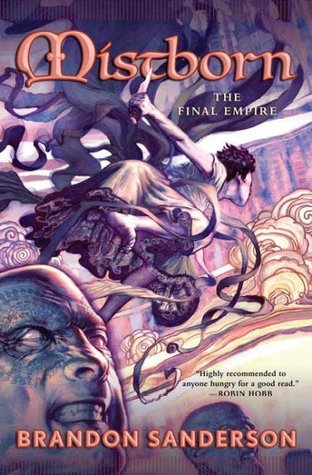 Mistborn: The Final Empire
Mistborn: The Final Empire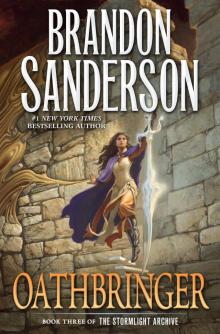 Oathbringer
Oathbringer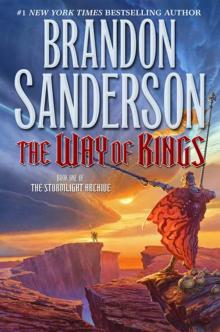 The Way of Kings
The Way of Kings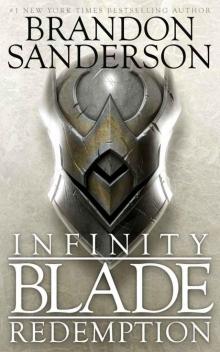 Redemption
Redemption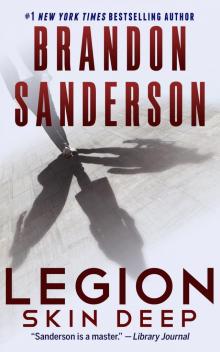 Skin Deep
Skin Deep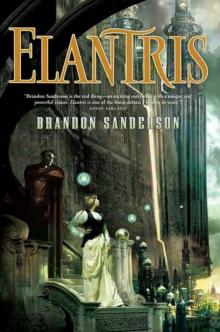 Elantris
Elantris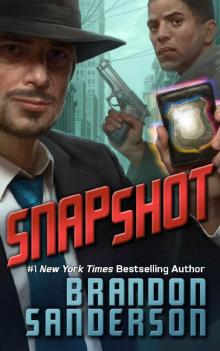 Snapshot
Snapshot Sixth of the Dusk (Cosmere)
Sixth of the Dusk (Cosmere)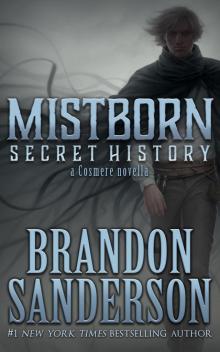 Mistborn: Secret History
Mistborn: Secret History White Sand, Volume 1
White Sand, Volume 1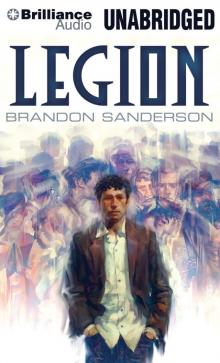 Legion
Legion The Well of Ascension
The Well of Ascension The Bands of Mourning
The Bands of Mourning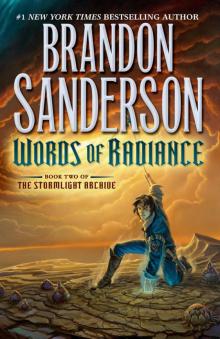 Words of Radiance
Words of Radiance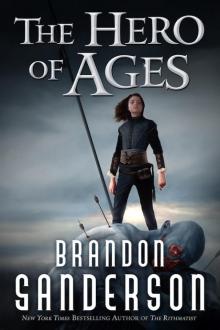 The Hero of Ages
The Hero of Ages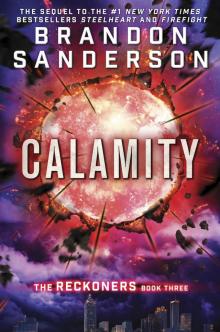 Calamity
Calamity Alcatraz Versus the Scrivener's Bones
Alcatraz Versus the Scrivener's Bones The Alloy of Law
The Alloy of Law The Emperors Soul
The Emperors Soul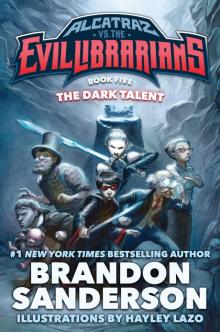 The Dark Talent
The Dark Talent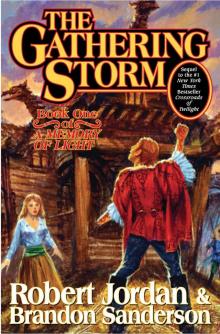 The Gathering Storm
The Gathering Storm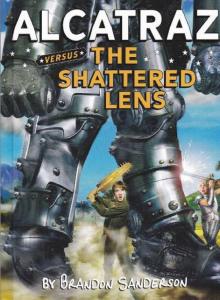 Alcatraz Versus the Shattered Lens
Alcatraz Versus the Shattered Lens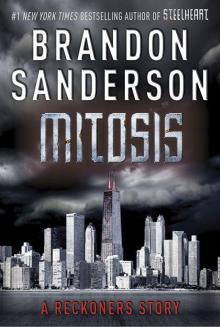 Mitosis
Mitosis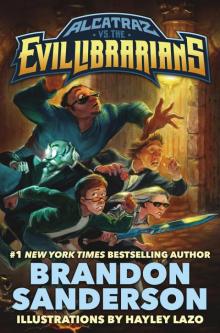 Alcatraz vs. The Evil Librarians
Alcatraz vs. The Evil Librarians Rhythm of War (9781429952040)
Rhythm of War (9781429952040)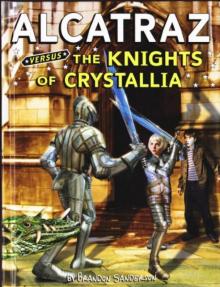 Alcatraz Versus the Knights of Crystallia
Alcatraz Versus the Knights of Crystallia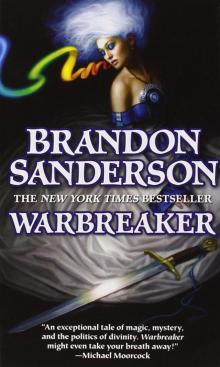 Warbreaker
Warbreaker Firstborn
Firstborn Starsight
Starsight Edgedancer
Edgedancer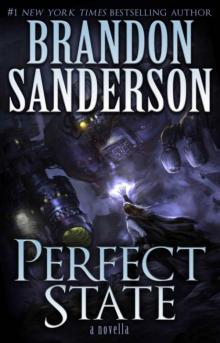 Perfect State
Perfect State Shadows of Self
Shadows of Self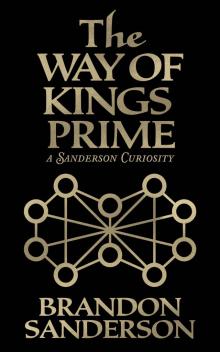 The Way of Kings Prime
The Way of Kings Prime Starsight (US)
Starsight (US) Shadows for Silence in the Forests of Hell
Shadows for Silence in the Forests of Hell Arcanum Unbounded: The Cosmere Collection
Arcanum Unbounded: The Cosmere Collection Awakening
Awakening Firefight
Firefight Dawnshard
Dawnshard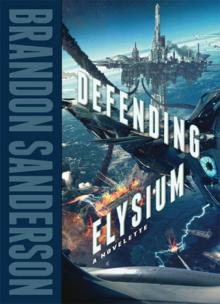 Defending Elysium
Defending Elysium White Sand
White Sand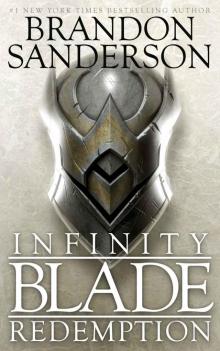 Infinity Blade: Redemption
Infinity Blade: Redemption The Final Empire
The Final Empire Skyward
Skyward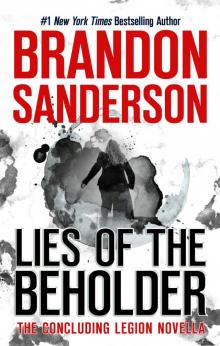 Lies of the Beholder
Lies of the Beholder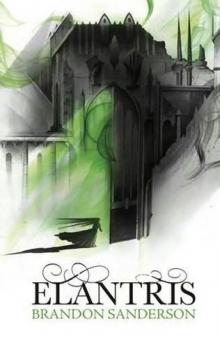 Elantris e-1
Elantris e-1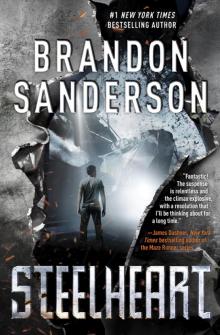 Steelheart r-1
Steelheart r-1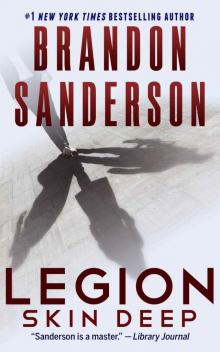 Legion: Skin Deep
Legion: Skin Deep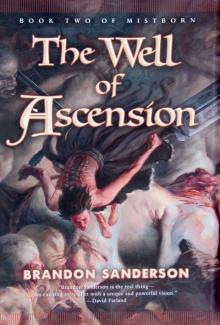 Well of Ascension
Well of Ascension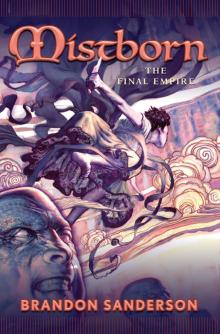 Mistborn
Mistborn Alcatraz versus the Evil Librarians
Alcatraz versus the Evil Librarians The Final Empire m-1
The Final Empire m-1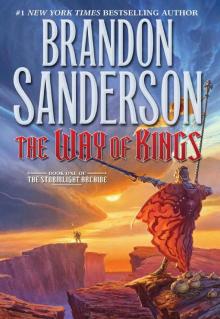 The Way of Kings (Stormlight Archive, The)
The Way of Kings (Stormlight Archive, The)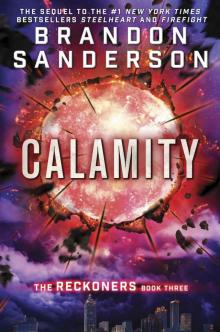 Calamity (The Reckoners)
Calamity (The Reckoners) Legion and the Emperor's Soul
Legion and the Emperor's Soul Legion: The Many Lives of Stephen Leeds
Legion: The Many Lives of Stephen Leeds The Mistborn Trilogy
The Mistborn Trilogy Bands of Mourning
Bands of Mourning Alcatraz
Alcatraz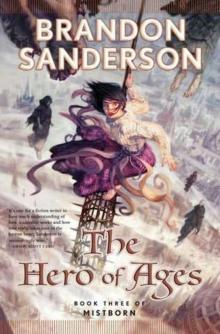 The Hero of Ages m-3
The Hero of Ages m-3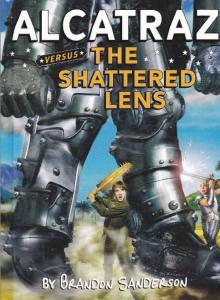 Alcatraz vs. the Shattered Lens
Alcatraz vs. the Shattered Lens The Alloy of Law: A Mistborn Novel
The Alloy of Law: A Mistborn Novel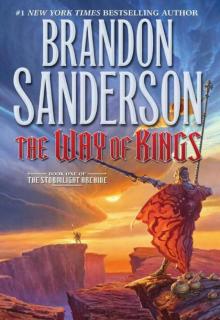 The Way of Kings sa-1
The Way of Kings sa-1 Infinity Blade: Awakening
Infinity Blade: Awakening Sixth of the Dusk
Sixth of the Dusk The Stormlight Archive
The Stormlight Archive The Aether of Night
The Aether of Night